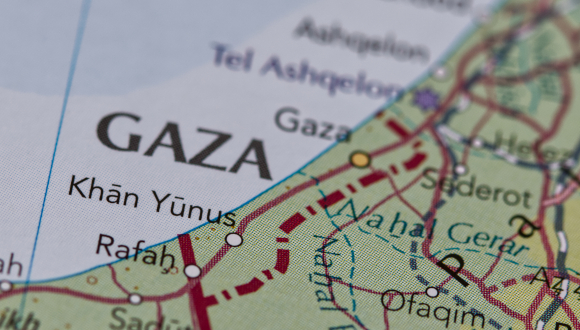Poll finds that a third of Israel’s Arab citizens believe an external non-Palestinian body should govern life in the Gaza Strip after the war

Over half of the Israeli Arab public feels that the war has generated a sense of shared destiny between Arabs and Jews in Israel
Support Tel Aviv UniversityAn extensive study from the Moshe Dayan Center for Middle Eastern and African Studies at Tel Aviv University (TAU) indicates that a third of Israel’s Arab citizens (34.3%) believe that an external non-Palestinian body should govern life in the Gaza Strip after the war. The data was presented at The Future of Israel, the Annual Convention held at TAU in June 2024.
Based on a survey including 502 Arab Israeli citizens 18 or over, constituting a representative sample of Israel’s adult Arab population, the research was initiated by the Konrad Adenauer Program for Jewish-Arab Cooperation supported by the German Konrad-Adenauer-Stiftung at TAU’s Moshe Dayan Center.
The study was conducted by Dr. Arik Rudnitzky, Director of the Konrad Adenauer Program, who explains that with political uncertainty regarding “the day after the war” and numerous options arising in both local and worldwide discourse, respondents were asked about who should assume responsibility for governing life in the Gaza Strip after the war. Most respondents (58.5%) felt that life in the Gaza Strip should be run by Palestinians. The highest preference is for local bodies from Gaza (24.4%), the Palestinian Authority is second (19.4%), and Hamas comes last (14.7%).
A third of the survey’s respondents (34.4%) believed that an external non-Palestinian body should govern life in the Gaza Strip after the war. The preferred option was an international force (19.4%), with Israel far behind (8.4%), and finally Arab states (6.5%).
The collected data also indicated that more than half of Israel’s Arab citizens feel that the prolonged war has engendered a sense of shared destiny between Arabs and Jews, with a quarter (25.3%) responding that this is true to a great extent. The other half (48.4%) think that the war has not engendered such a feeling, with a third (33.6%) totally denying that any such feelings exist.
“The study shows that the current war between Israel and Hamas, which is the longest and hardest in the history of the Israeli-Palestinian conflict since 1948, has not altered the political compass of Israel’s Arab citizens,” Dr. Rudnitzky said. “The findings provide clear proof for the distinction they make between fluctuations in the broader context of the Israeli-Palestinian conflict and political developments inside Israel, which they are able to influence.
“Israel’s Arab citizens worry about their brethren in Gaza, which is only natural and should be respected. However, it’s important to understand that sympathizing with Palestinians in Gaza is not the same as identifying with their political leadership. In fact, a significant part of the survey’s respondents believe that local elements in Gaza, and not Hamas, should govern life in the Gaza Strip after the war, and another third say that a non-Palestinian body should do this. The conclusions emerging from the current survey are important not only to decision-makers in the country, but also to every citizen who believes in a true partnership between Jews and Arabs within Israel.”